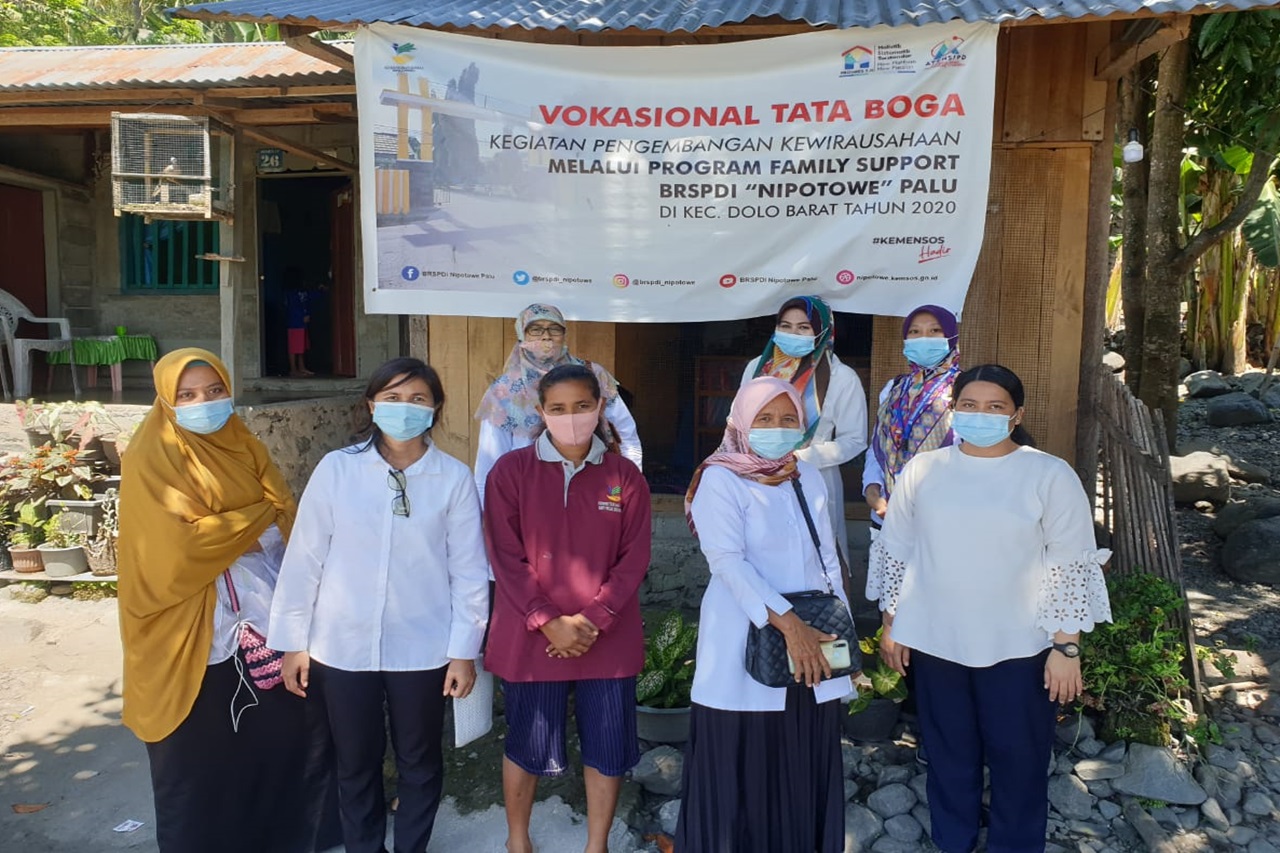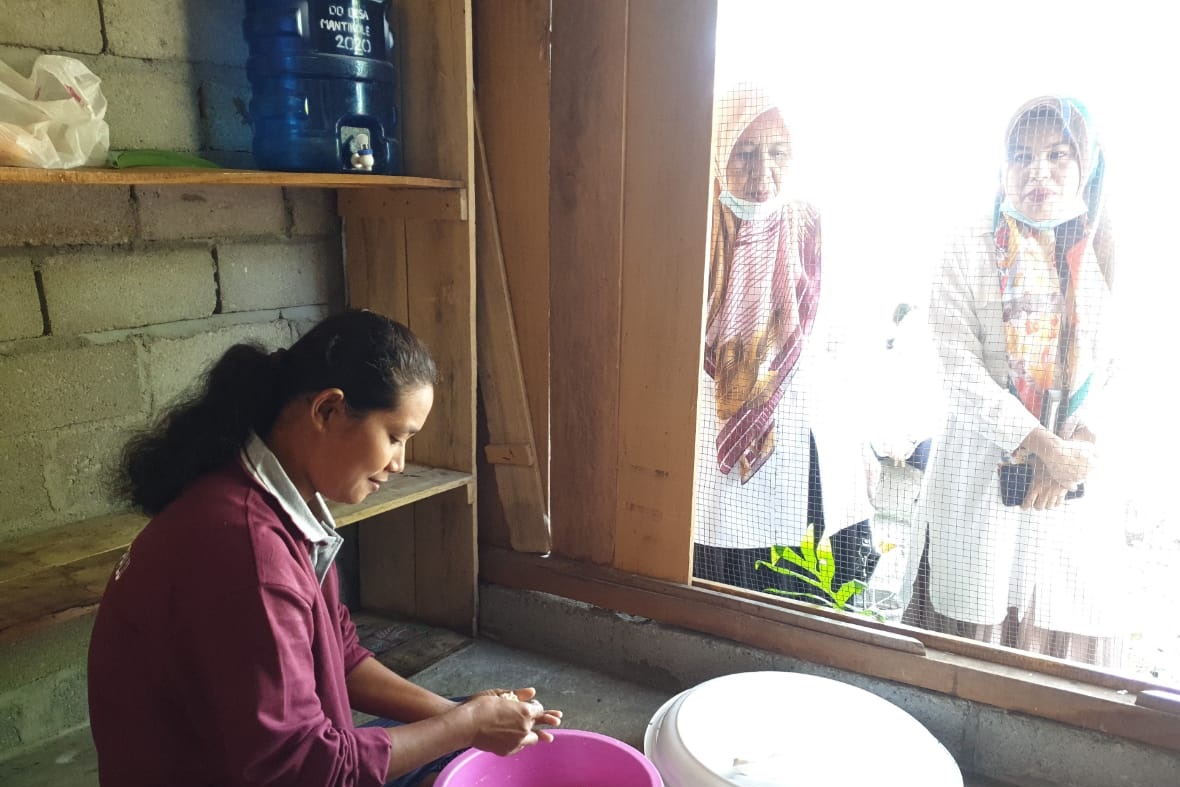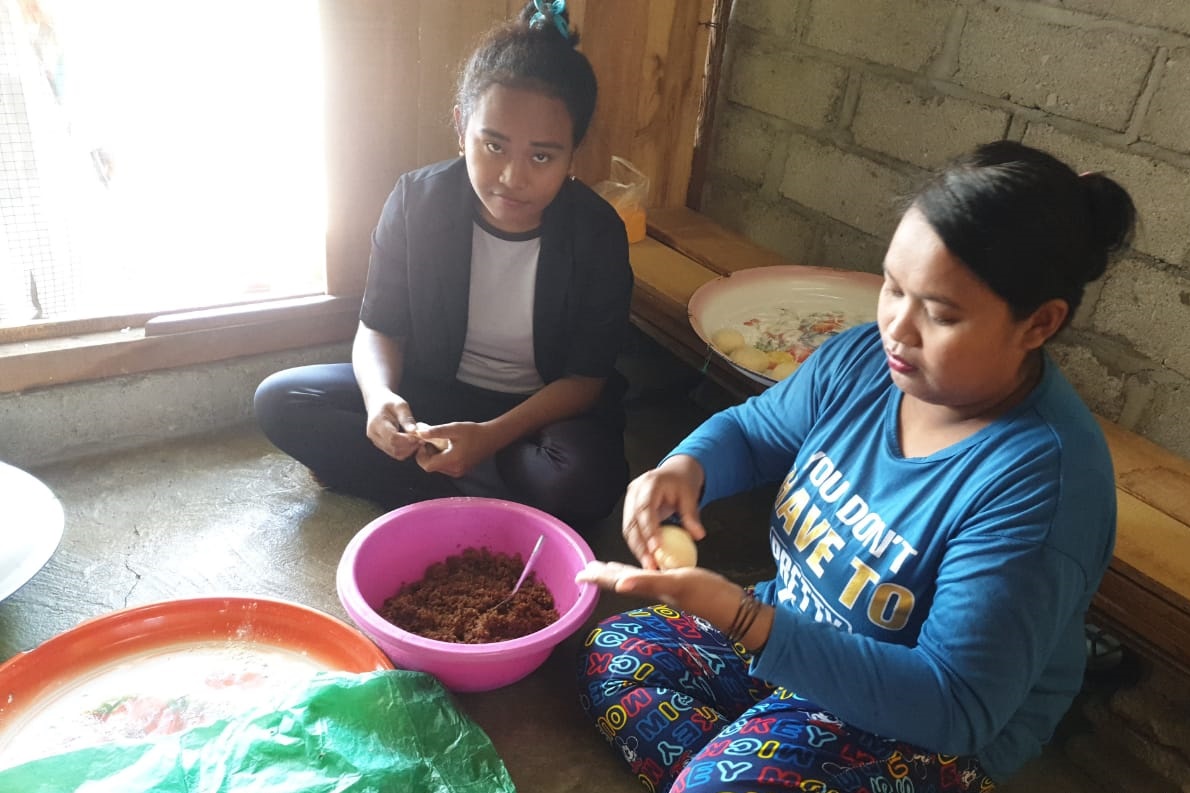Writer :
Humas "Nipotowe" Palu
Editor :
Annisa YH
Translator :
Intan Qonita N
SIGI (September 30, 2020) - People in general still have difficulty distinguishing people with intellectual disabilities (PDI) from other disabilities, which are easily visible physically. Not infrequently, people with intellectual disabilities are stigmatized as stupid, lazy, unable to work and so on. In fact, they have limited thinking and/or adaptive functions because their intelligence level is below average, so they experience obstacles in interacting with the environment and participating fully and effectively on the basis of equal rights.
“Intellectual disabilities have potential if they are trained and educated, especially by families. Often we find cases where intellectual disabilities tend to be left unchecked and do not get access to the services they need because they are not physically visible,” said Nureja, as Section Head of Social Rehabilitation Services in "Nipotowe" Social Rehabilitation Center for People with Intellectual Disabilities (BRSPDI) Palu. "If this is allowed, people with intellectual disabilities will find it difficult to live independently, participate, and develop their potential optimally, which results in living in poverty," explained Nureja.
"Nipotowe" Center in Palu, which is the Task Force Unit of the Indonesian Ministry of Social Affairs, seeks to be present to provide assistance and capacity building for persons with intellectual disabilities, which is carried out inside and outside the hall, through the ATENSI program. This requires the cooperation and involvement of various parties, including families, communities, government and the business world.
One of the ATENSI programs implemented is entrepreneurship development activities through family support, the implementation of which has been running for 2 (two) months, from August-September 2020, in 6 villages namely Kaleke Village, Rarampadende, Luku, Mantikole, Pewunu, and Pesaku in West Dolo District, Sigi Regency.
The results of the monitoring and evaluation carried out by "Nipotowe" BRSPDI Palu today (30/09/2020), it was found that there was an active participation and willingness of intellectual disabilities to learn entrepreneurship, either through livestock business, catering, workshops, or cement brick making crafts. "The works of intellectual disabilities have been seen, some have even been marketed," said Nureja.
Furthermore, Nureja said that in addition to receiving entrepreneurship training, intellectual disabilities also received independence social assistance which was sent to the participant's account directly. However, there were also participants who experienced obstacles due to lack of guidance and family support.
“Intellectual disabilities have potential if they are trained and educated, especially by families. Often we find cases where intellectual disabilities tend to be left unchecked and do not get access to the services they need because they are not physically visible,” said Nureja, as Section Head of Social Rehabilitation Services in "Nipotowe" Social Rehabilitation Center for People with Intellectual Disabilities (BRSPDI) Palu. "If this is allowed, people with intellectual disabilities will find it difficult to live independently, participate, and develop their potential optimally, which results in living in poverty," explained Nureja.
"Nipotowe" Center in Palu, which is the Task Force Unit of the Indonesian Ministry of Social Affairs, seeks to be present to provide assistance and capacity building for persons with intellectual disabilities, which is carried out inside and outside the hall, through the ATENSI program. This requires the cooperation and involvement of various parties, including families, communities, government and the business world.
One of the ATENSI programs implemented is entrepreneurship development activities through family support, the implementation of which has been running for 2 (two) months, from August-September 2020, in 6 villages namely Kaleke Village, Rarampadende, Luku, Mantikole, Pewunu, and Pesaku in West Dolo District, Sigi Regency.
The results of the monitoring and evaluation carried out by "Nipotowe" BRSPDI Palu today (30/09/2020), it was found that there was an active participation and willingness of intellectual disabilities to learn entrepreneurship, either through livestock business, catering, workshops, or cement brick making crafts. "The works of intellectual disabilities have been seen, some have even been marketed," said Nureja.
Furthermore, Nureja said that in addition to receiving entrepreneurship training, intellectual disabilities also received independence social assistance which was sent to the participant's account directly. However, there were also participants who experienced obstacles due to lack of guidance and family support.
“Some of the ones we met were not registered in the family card, even though the previous family card was registered. Usually it happens because of family problems, which result in intellectual disabilities becoming victims,” said Nureja. "After we advocate, finally the child is re-registered and can access the independence social assistance he needs," explained Nureja.
For this reason, "Nipotowe" Center in Palu strives to continue to advocate and encourage the involvement of families, communities and the government to provide assistance and capacity building for intellectual disability independence. "They are a gift from God, which we must not let in vain," he concluded.
Share :
 English
English
 Bahasa
Bahasa



